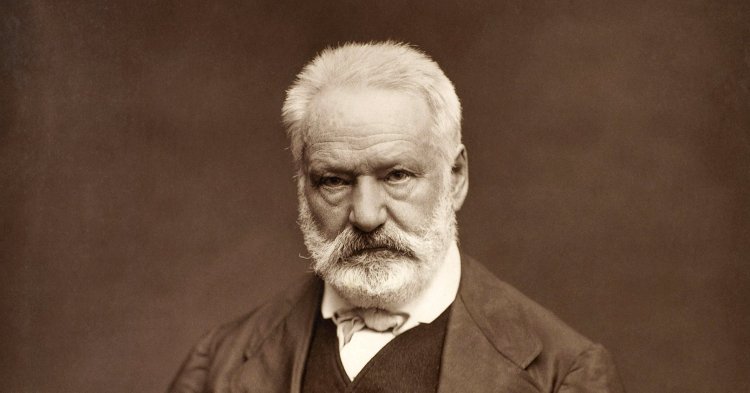“A day will come when your arms will fall from your hands! A day will come when war will seem as absurd between Paris and London, between Petersburg and Berlin, between Vienna and Turin, as it would today between Rouen and Amiens or between Boston and Philadelphia. A day will come when you — France, Russia, Italy, England, Germany — all you nations of the continent will merge, without losing your distinct qualities and your glorious individuality, in a close and higher unity to form a European brotherhood, just as Normandy, Brittany, Burgundy, Lorraine, Alsace, all our provinces are merged together in France.”
“A day will come when the only fields of battle will be markets opening up to trade and minds opening up to ideas. A day will come when bullets and bombs will be replaced by votes, by universal suffrage of the peoples, by the venerable arbitration of a great sovereign senate which will be to Europe what Parliament is to England, what this diet is to Germany, what the Legislative Assembly is to France. A day will come when we will display cannon in museums just as we display instruments of torture today, amazed that such things could ever have been possible.”
“A day will come when we shall see those two immense groups, the United States of America and the United States of Europe, stretching out their hands across the sea, exchanging their products, their arts, their works of genius […] And to bring about that day will not take another 400 years, for we are living in a fast-moving age.”
Victor Hugo foresaw a political process that would lead to a united Europe, or a European brotherhood, as he calls it. His vision was ultimately a pan-European state with all the European nations of his age merged into one, which is undoubtedly very different from the Europe we have today. He still got many things right, though.
Today we know that part of his vision became true. After all, even the thought that war could exist between countries like France, the UK and Germany is completely absurd in today’s world, just like Hugo predicted it. The Single Market has opened up European countries to trade with one another. Bullets and bombs have indeed been replaced by votes – even at a European level now that there exists a democratic mechanism for Europeans to vote on common issues every five years in the elections to the European Parliament.
The setting of this speech, the Paris Peace Congress, was the third conference in a series of peace conferences organised in Europe in the mid-1800s. The first event had taken place in London in 1843 on the initiative of the London Peace Society, and the second one in Brussels in the revolutionary year 1848. The seventh and last one took place in Edinburgh in 1853.
The 1840s was a time in European history when the memory of the Napoleonic wars was still fresh in people’s minds, and lasting peace was high up on the agenda. Political tension hung in the air after the revolutions of 1848. It was also a time when ideologies (liberalism, socialism) were on the rise, painting pictures of different futuristic utopias. The belief in the idea of progress was strong. The advancement of science had brought about a wholly new European scientific community.
Something that surely must have influenced Victor Hugo’s point of view was that Switzerland had become a federal state the year before, in 1848, with the adoption of a federal constitution. Another contributing factor to this vision was surely the fact that the (relatively) young federal state on the other side of the Atlantic had become a flourishing economy that was already heavily engaged in trade with European nations.
Victor Hugo’s speech is a trace of a wave of optimism about the future among European intellectuals in the mid-1800s. His enthusiasm didn’t save the continent from additional conflict, however. War would once again rage across the continent in the Crimean War in 1853, and the Peace Congress initiative died out as a result. Victor Hugo’s legacy lived on as an inspiration to many later thinkers, not least the founders of the European Union as we know it today.
One can wonder what Victor Hugo would think about today’s Europe, 170 years after his speech. He would surely be very happy about the existence of a much more unified Europe than his Europe of 1849. But would he consider the unification complete? Perhaps he would still argue for a federal state. (He would probably also be sad about the recent fire at Notre-Dame de Paris – he liked the cathedral so much that he even wrote a book about it!)
You can read Victor Hugo’s entire speech in original French on our sister edition Le Taurillon.

Follow the comments: |
|
